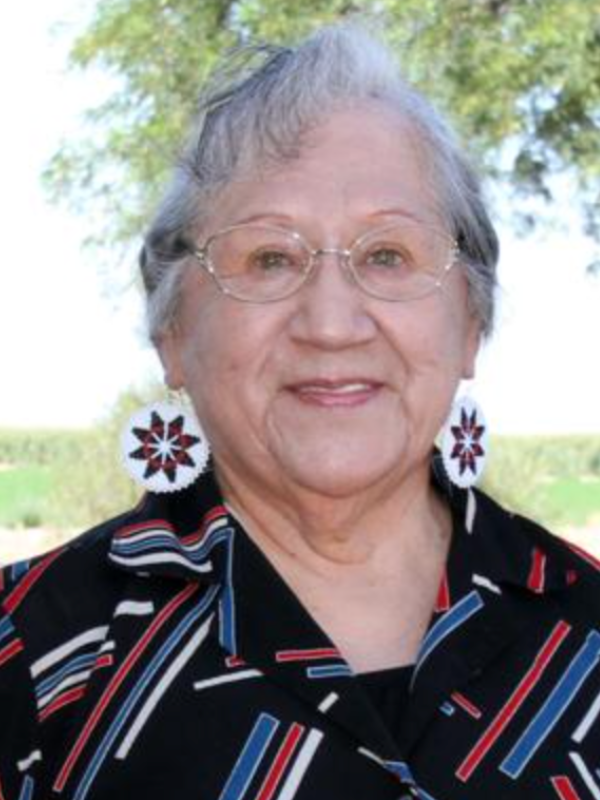Leona Carlyle-Kakar, a prominent member of the Ak-Chin Indian Community, has passed on to the spirit world. She was instrumental in securing one of the most substantial water settlements for Indian Country and spurring the economic development of her tribe.

Carlyle-Kakar died on Sunday, April 14, 2024. She was 88 years old.
Carlyle-Kakar was born on the Ak-Chin Reservation on March 29, 1936 in Casa Grande, Ariz. After earning her GED in 1965, she served on the Ak-Chin tribal council for 40 years. During that time, she served as council secretary, council member, vice chairman, and the council’s first-ever female chairman.
As well, she served as the Ak-Chin Farm Board Chairman from 1965 until she retired in 2016 at age 80.
Carlyle-Kakar and her brothers were instrumental in organizing the Ak-Chin community. While working at a grocery store in the 1950s, the siblings noticed that farmers who were leasing tribal land were earning revenue while the Ak-Chin community remained in poverty.
In 2016, she told the Maricopa Monitor that she and her brothers held a community meeting in the shade of a tree in a large field to pitch their idea of organizing and farming their land.
“We got people together and told them they would have jobs and the community would be better off if we did this,” she said. “We knew we could make money, but the (Bureau of Indian Affairs) said it would never work.”
The tribal community was organized in 1961, and farming began soon after without assistance from the BIA. Her efforts helped the Ak-Chin Indian Community’s farming enterprise grow from 4,000 acres to more than 15,000, making it one of the largest farming communities in the U.S.
Carlyle-Kakar was known to many as “Miss Water Rights” for her work doggedly engineering Indian Country’s first water rights settlement with the federal government.
In the late 1960s, Carlyle-Kakar flew to Washington, D.C., for the first time to advocate for her tribe’s water rights. Nearly a decade and many trips later, she was successful in securing the Ak-Chin Indian Water Rights Settlement Act of 1984
“I guess farming is my baby,” Carlyle-Kakar told Site Selection Magazine in 2012.
Carlyle-Kakar is also credited with taking part in the opening of the tribe’s Harrah’s Ak-Chin Casino in 1994.
In 2018, she was honored with a lifetime achievement award by Pinal 40, a non-profit in Pinal County, Ariz., supporting youth, education, and agriculture.
Ak-Chin Chairman Robert Miguel told the Maricopa Monitor today that Carlyle-Kakar's efforts have made the community what it is today.
“As we see the structures that are up in our community, the homes and just the different resources that we live by — that’s Leona Kakar,” Miguel said. “I consider her as the greatest leader the Ak-Chin Community’s ever had in spearheading our cause for water rights and what we’ve been able to do as a community. We’ve become who we are today because of her as far as a prosperous and great farming community and enterprise.”
More Stories Like This
Native News Weekly (August 25, 2024): D.C. BriefsNavajo Nation Mourns the Passing of Former Vice President Rex Lee Jim
Deb Haaland Earns Endorsement From Communications Workers of America Local 7076
University Soccer Standout Leads by Example
Two Native Americans Named to Democratic Congressional Campaign Committee's“Red to Blue” Program
Help us defend tribal sovereignty.
At Native News Online, our mission is rooted in telling the stories that strengthen sovereignty and uplift Indigenous voices — not just at year’s end, but every single day.
Because of your generosity last year, we were able to keep our reporters on the ground in tribal communities, at national gatherings and in the halls of Congress — covering the issues that matter most to Indian Country: sovereignty, culture, education, health and economic opportunity.
That support sustained us through a tough year in 2025. Now, as we look to the year ahead, we need your help right now to ensure warrior journalism remains strong — reporting that defends tribal sovereignty, amplifies Native truth, and holds power accountable.
 The stakes couldn't be higher. Your support keeps Native voices heard, Native stories told and Native sovereignty defended.
The stakes couldn't be higher. Your support keeps Native voices heard, Native stories told and Native sovereignty defended.
Stand with Warrior Journalism today.
Levi Rickert (Potawatomi), Editor & Publisher


